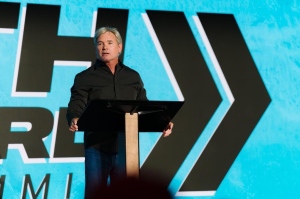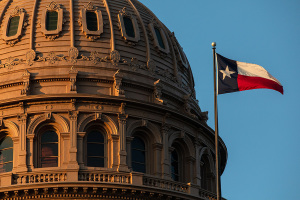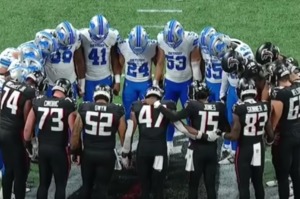Resurgence of Calvinism is Real Despite Survey, Pastors Say
Despite a survey saying otherwise, some pastors are convinced that there is a resurgence in Calvinism, or Reformed theology, particularly among young believers today.
A new Barna Group survey, released on Monday, revealed that the proportion of Protestant pastors who identify their church as "Calvinist or Reformed" has remained the same – at about three in ten – compared to a decade ago.
The Ventura, Calif.,-based research group sought out to explore whether the "New Calvinism" affected the allegiances of pastors and whether Reformed churches were really growing, as some observers have touted.
While the study showed that Calvinist churches did grow in attendance from 80 adult attendees per week in the year 2000 to 90 attendees in the year 2010, Wesleyan and Arminian churches also reported growth from 85 to 100 attendees.
The survey also found that among younger pastors (ages 27 to 45), 29 percent identified as Reformed while 34 percent identified as Wesleyan. Pastors aged 46 to 64 years were more evenly split (34 percent Reformed and 33 percent Arminian) and pastors 65 years old or older were least likely to describe themselves as either Reformed (26 percent) or Arminian (27 percent).
Identification with these labels was left up to each pastor's interpretation.
David Kinnaman, director of the study, said he found "no discernable evidence" from the study that there is a Reformed shift among U.S. congregation leaders over the last decade.
"Whatever momentum surrounds Reformed churches and the related leaders, events and associations has not gone much outside traditional boundaries or affected the allegiances of most of today's church leaders," he stated in the report.
The Rev. Kevin DeYoung, senior pastor of University Reformed Church in East Lansing, Mich., doesn't believe the survey "tells us much."
For one, it's difficult to measure whether there is a Reformed resurgence – whether it's through book sales, conference registrations or how pastors identify themselves – he pointed out.
Also, many pastors prefer not to wear any theological label, DeYoung noted. And others may adhere to theology that fits either Calvinism or Arminianism but not realize the label fits, he added.
"All that to say, I don't think the survey is particularly good news or particularly bad news for Calvinists," he told The Christian Post.
The Reformed pastor, who ministers to many college students, has seen a growing number of young Christians flock to the New Calvinism. They're rejecting contemporary evangelicalism and embracing the fundamentals of the teachings of 16th century reformer John Calvin, which include belief in the sovereignty of God, the sufficiency and authority of Scripture, the total depravity of humanity and the doctrine of justification by faith alone.
"I'm convinced that more Christians in their 20s and 30s call themselves Reformed than would have ten years ago," DeYoung said.
LifeWay Researcher and longtime pastor Ed Stetzer shares the same perspective and believes a survey of some 600 pastors cannot accurately measure the surge.
"I think there IS a resurgence of Calvinism (particularly within evangelicalism), but since it is younger, and a subset of a very large pool of pastors (for polling purposes), it is not evident via the research," he wrote in his blog.
The Barna Group surveyed some 600 Protestant clergy from across the United States in September. The national sample from previous surveys, including the one conducted in the year 2000, was also around 600 pastors.
Kinnaman acknowledged that a survey may not be able to accurately measure a resurgence.
"It is important to note that the influence of Reformed churches might also be measured through other metrics that are currently unavailable, such as the theological certainty of self-described adherents, their level of acceptance toward those who are not Calvinist, and the new methods Reformed leaders are using to market their views to their peers and to the public," he stated.
Still, Reformed pastor DeYoung recognized that with over 300,000 churches in the United States, it takes a lot of movement to see a shift in the American church scene.
Though America might not be seeing the kind of Reformed resurgence where tens of thousands of churches are becoming Calvinist, DeYoung believes there will be a slight uptick in future years. He indicated that surveying graduating seminarians from leading evangelical seminaries would be interesting.




























